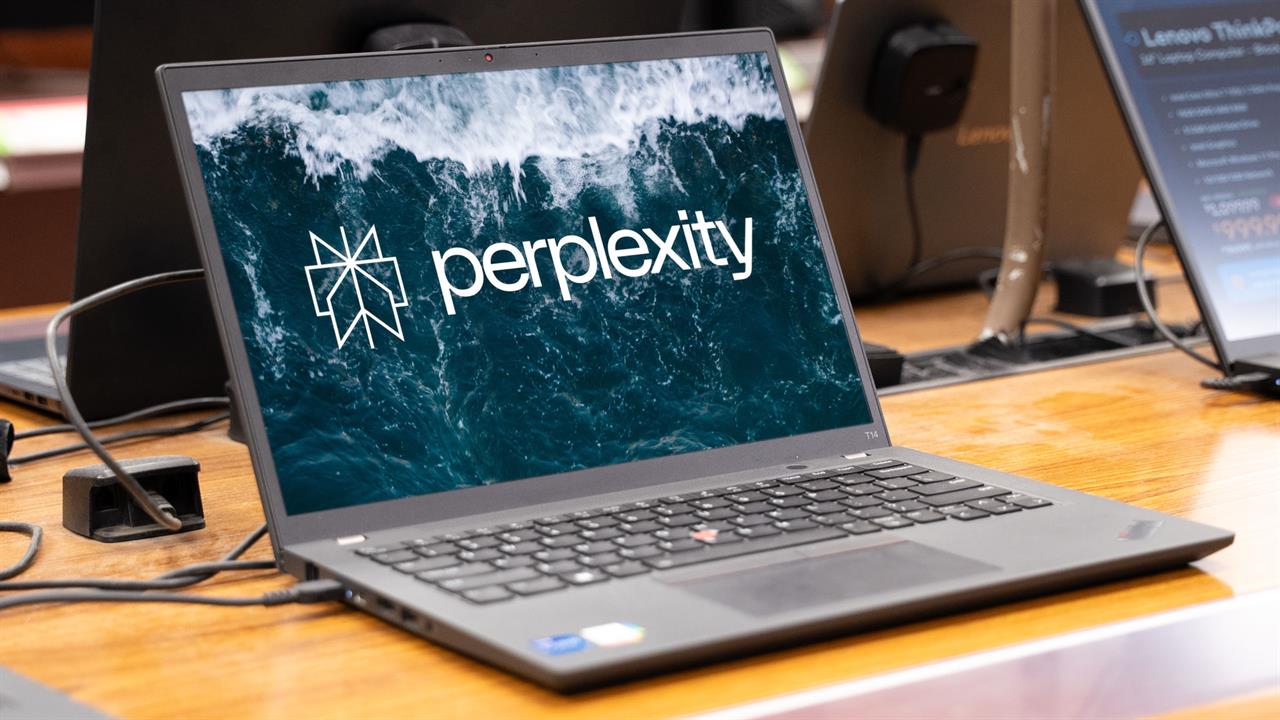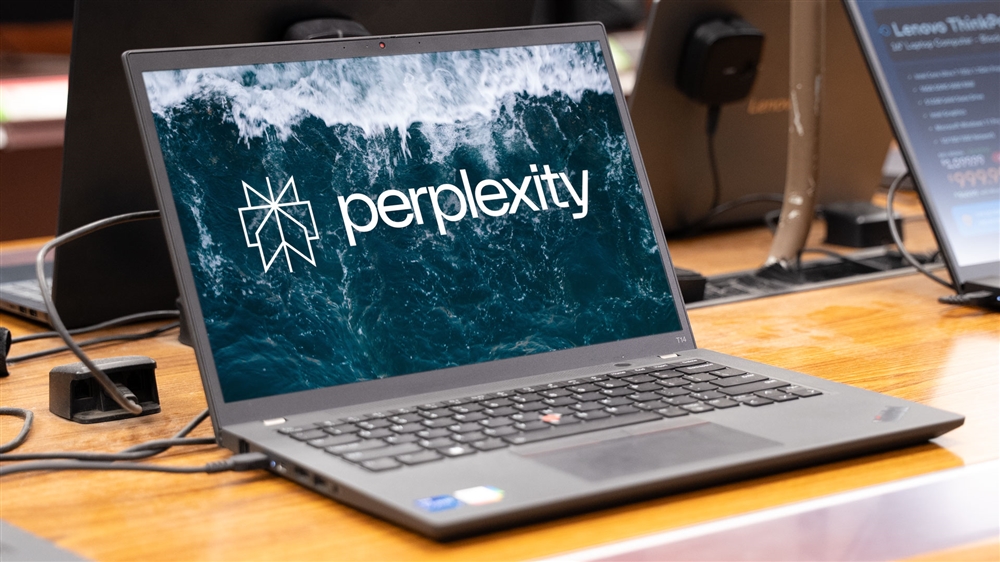This Week in AI: OpenAI Promises GPT-5 Changes
For Aug. 15, 2025: Perplexity bids for Google Chrome, Google adds "Create" tab to Photos, more impacts from AI energy needs, Elon Musk goes after Apple over OpenAI, companies still searching for AI profits.News

When OpenAI announced GPT-5 last week, the company promised an easier to use and more friendly AI. The week since hasn't been so rosy.
As reported by the Wall Street Journal, a number of GPT-5 users have taken to social media to complain about changes made to its tool and the way it responds. In some cases, users reported that the tone of its responses was less friendly, while others said that it didn’t provide as much detail while helping organize ideas or brainstorm projects.
It all seemed like standard launch struggles until OpenAI CEO Sam Altman posted on X that his team is working to give GPT-5 a "warmer personality," giving some credence to their complaints. Altman also said popular older models will be available for all paying users, including 4o. "If we ever do deprecate it, we will give plenty of notice," he promised.
"One learning for us from the past few days is we really just need to get to a world with more per-user customization of model personality," Altman said.
Of course, the tech industry has a long history of rocky product launches, from Facebook visual changes to Google privacy issues. But for AI, product launches have an extra element because these technologies are becoming so ingrained in people’s lives.
People are increasingly shifting to AI chatbots as a preferred way to interact with computers and internet, and anecdotal evidence increasingly suggests users are increasingly having deeper and more personal conversations in their chats. For some, chatbots have become ad-hoc therapists (even though experts warn it's not a great idea).
That all means product changes may have a deeper impact on people as time goes on. It also serves as a reminder for all of us about the rapidly shifting impact AI is having on society. And perhaps most importantly, it's a sign that AI companies may have to tread even more carefully when improving their products.
Perplexity makes $34.5 billion offer for Google Chrome
You may have forgotten that Google is in the middle of two antitrust cases in the U.S., one involving its massive power in the world of search technology, and the other focused on the company's power over ads. Two separate judges overseeing the two cases have both ruled Google to have violated monopoly rules. Now, the question is what to do about it.
Government lawyers have argued that Google should be broken up, taking away its power to manipulate markets and exercise its control over how the internet functions by reducing how many products it owns. One idea was to force Google to sell its Chrome browser, which today acts as an extension of the company on people’s computers with deep connections to services like Gmail, Calendar, Docs, YouTube and more.
This week, the multibillion dollar startup Perplexity made an offer to buy Chrome for $34.5 billion.
Perplexity’s offer isn’t out of kindness, though. The AI startup has been aggressively building a competitor to Google, designed with AI tools built in. That includes Perplexity’s news function, which aggregates and summarizes popular news stories from across the web. That process has had its own challenges though, as numerous publishers including Forbes and Condé Nast have said Perplexity disregarded their rules and requests not to feed their content to its AI.
Now, Perplexity is trying to buy Chrome.
Many tech watchers have openly wondered whether it's all a stunt, and they have reason. Perplexity also attempted to buy TikTok back in January, when the China-based social networking giant was back at the center of U.S. presidential politics after Donald Trump was sworn in for a second term in The White House.
Google Photos adds a "create" tab
Google has long relied on solid editing and sync features to help its Google Photos storage service stand out. But in the past couple years in particular, Google has branched out what Google Photos can do, with features like Magic Editor, which can erase objects from an image.
Now, Google is taking another step, but this time by changing the way its features are described. Google said it’s going to add the word "create" to a tab in its app that houses image manipulation and other features.
Though it may seem obvious, Google's move may help to settle a long run debate about what a photo is. Photographers used tools like Adobe’s Photoshop to manipulate pictures they make, adjusting brightness and contrast, correcting color, and drawing attention to various aspects of an image. News photographers who focus on capturing the truth of the world around them, are historically stringent about how much editing is considered appropriate in order for an image to remain “real.”
By using the word “create” around AI tools, Google seems to acknowledge that these technologies are going far beyond simple touch ups, and instead are venturing into art and make-believe rather than depicting reality as seen through your eyes.
AI energy needs will continue to grow
The tech industry’s relationship with energy has always been interesting, as data centers and communications networks need significant sources of power to operate.
AI seemed poised to raise those stakes even further as industry heavyweights have poured billions of dollars into new computers, infrastructure and chips to power these new capabilities.
The results are coming in and they’re pretty dramatic. AI is expected to grow to represent more than 1/10 of U.S. power needs within the next few years, according to one estimate, as reported by the New York Times. And even though companies like Amazon, Microsoft, Meta, Alphabet and others have announced deals to fund refurbishment and construction of power generation stations, including nuclear reactors, it still doesn’t seem to be enough. Now, according to the NYT report, we’re starting to find out exactly what that all means for the rest of us.
In some cases, the resulting stress on the power grid is expected to raise energy prices by as much as 25% in places such as Virginia in the next few years, Carnegie Mellon University estimates. In others, the costs may be lower, but the data still says we’ll feel it in our pocketbooks.
"The business of keeping America’s lights on is mostly about two things: supplying reliable electricity and figuring out what to charge to deliver it," the NYT wrote. "Recent reports expect data centers will require expensive upgrades to the electric grid, a cost that will be shared with residents and smaller businesses through higher rates unless state regulators and lawmakers force tech companies to cover those expenses."
It’s worth noting that tech companies aren’t the only people trying to meet these new energy needs. An executive order earlier this summer from The White House is also attempting to clear administrative red tape around new energy bills plants, calling it an important element of America’s competitiveness in the AI race.
Musk complains about AI rankings in Apple's App Store
For many of us, it seemed like only a matter of time before Elon Musk would turn his attention to Apple. The companies have always had an interesting relationship, particularly because Tesla is so closely associated with its design for its cars -- very similar to how Apple is seen as a design leader in computers and smartphones.
Musk’s latest concern though is about Apple’s App Store, where the apps for his Grok AI and X social network are competing with the likes of Google, OpenAI and Meta.
Apple, Musk complained, is giving preferential treatment to OpenAI. The company’s ChatGPT app is at the top of the App Store, and its technology is also built into optional parts of Apple Intelligence. In a series of posts on his social network, Musk accused Apple of "behaving in a manner" that made competition against OpenAI tougher.
"App Store, why do you refuse to put either X or Grok in your ‘Must Have’ section when X is the #1 news app in the world and Grok is #5 among all apps?” Musk posted. “Are you playing politics?"
Despite billions invested in AI, significant profits are hard to find
AI is much more than a technology. For many people, it is a likely catalyst that will push humanity toward a better future, where our needs are met by machines endlessly working and serving on our behalf.
Businesses of course see opportunities to replace expensive staff with automation as well, boosting profits and potentially reducing errors along the way. Machines don’t sleep, complain or get sick, after all.
But the future’s promise is still a bit off in the distance. A recent analysis from the New York Times noted how companies continue to invest eye watering sums into new AI tools and infrastructure. But the expected profits haven’t yet materialized.
"AI technology has been racing ahead with chatbots like ChatGPT, fueled by a high-stakes arms race among tech giants and superrich start-ups and prompting an expectation that everything from back-office accounting to customer service will be revolutionized," the NYT wrote. "But the payoff for businesses outside the tech sector is lagging behind, plagued by issues including an irritating tendency by chatbots to make stuff up."
While some industry watchers may label this "AI-doomerism," a catch-all description for discussions that turn toward its negative impacts. Tech industry enthusiasts will say the profits will come as the world shifts to AI. Critics meanwhile might point to other tech booms that ultimately busted, including the internet — which created a bubble of highly valued tech companies, few of whom actually produced profits investors had hoped for (RIP Pets.com). The same happened when meme coins and NFTs were at one point the talk of Wall Street.
These trends haven’t vanished of course -- Google, Facebook and Netflix became massive companies after the dot-com bust. And Bitcoin is worth more today than it was back when it was more popular to talk about.
AI’s future seems even harder to gauge. The stakes seem otherworldly, with companies like OpenAI and Anthropic pulling valuations larger than the GDP of most countries. But the fundamental questions about how sustainable it all is remain.
More from MC News
- Everything You Need to Know About WiFi 7
- Keyboard 101: Intro to Computer Keyboards
- The NVIDIA 50 Series Laptop Buying Guide
- Can Your PC Run OpenAI's New GPT-OSS Large Language Models?
- Best 3D Printer Projects for Nintendo Switch 2
- How to Upgrade Your Laptop's RAM and Storage
- How to Build Your Own AI Personal Assistant
- The End is Coming for Windows 10: What You (Still) Need to Know
- Fix It Yourself: Talking to iFixit on Why Repairable Tech Matters
Ian Sherr is a widely published journalist who's covered nearly every major tech company from Apple to Netflix, Facebook, Google, Microsoft, and more for CBS News, The Wall Street Journal, Reuters, and CNET. Aside from writing, he tinkers with tech at home, is a longtime fencer -- the kind with swords -- and began woodworking during the pandemic.
Comment on This Post
See More Blog Categories
Recent Posts
This Week in AI: OpenAI Promises GPT-5 Changes
For Aug. 15, 2025: Perplexity bids for Google Chrome, Google adds "Create" tab to Photos, more impacts from AI energy needs, Elon Musk goes after Apple over OpenAI, companies still searching for AI profits.
Continue Reading About This Week in AI: OpenAI Promises GPT-5 Changes










